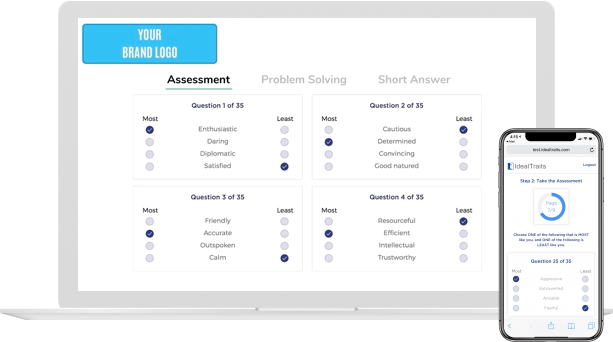Intro to Agency Purchases & Mergers
The differences between “purchases” and “mergers” is so great that one is forced to wonder how they became so closely related in agency management literature. The two activities are fundamentally different in almost every respect. The motivations in the case of a merger are usually different from those in an agency purchase. In addition, the valuation procedures are, or should be, different. The end result is clearly different.
Author: Judi Newman The differences between “purchases” and “mergers” is so great that one is forced to wonder how they became so closely related in agency management literature. The two activities are fundamentally different in almost every respect. The motivations in the case of a merger are usually different from those in an agency purchase. In addition, the valuation procedures are, or should be, different. The end result is clearly different. Although it has become traditional for writers to discuss “purchases” and “mergers” together, the combination is curious in many ways. The two activities are fundamentally different in almost every respect. The motivations in the case of a merger are usually different from those in an agency purchase. In addition, the valuation procedures are-or at least ought to be-different. The end result is clearly different. Indeed, the differences between “purchases” and “mergers” is so great that one is forced to wonder how they became so closely related in agency management literature. One possible explanation is that while agency purchases and agency mergers are fundamentally different in most respects, there is a similarity in the sense that both involve the transfer of agency ownership. In a way, a merger is a special type of sale, in which each agency owner exchanges exclusive ownership in his or her agency for partial ownership in a new and larger agency. A more likely explanation for the common treatment of the two subjects is that both have traditionally been viewed as a means of achieving a more rapid rate of growth than can be achieved through organic growth. For whatever reasons the subjects of agency purchases and mergers have traditionally been linked together and more often than not are discussed together. Although there is the thread of similarity noted above, we consider them to be different animals and will, except on rare occasions such as this, discuss them separately. THE RATIONALE FOR PURCHASES AND MERGERS Reasons Agency Owners SellThe reasons that an agency owner might decide to sell are fairly limited, and therefore relatively obvious. In general, the willingness to sell an agency interest stems from the desire to convert the agency into more liquid assets for retirement or some other purpose. In some instances, the surviving spouse of an agency owner obtains the agency as a result of their death. Having no desire to enter the business, and being unwilling to trust the management and operation of the agency to the remaining employees, the surviving spouse looks around for a willing buyer. In general, there are five basic circumstances that motivate an agency owner to sell:
Although the reason that the seller has elected to dispose of the agency may be of importance in the valuation of the agency and the negotiation of the price to be paid, suffice it to say at this point that in each of the above listed situations, the desire to dispose of the agency is generally strong. Reasons Agency Owners BuyApart from the special case in which an individual who does not own an agency seeks to purchase one and become an entrepreneur, the rationale for most agency purchases (and most agency mergers) is growth. Often, agency acquisitions are a fundamental part of the agency’s strategic plan for growth. In other cases, the opportunity to require a book of business arises and the decision is made to acquire it. Agency acquisitions can aid the agency in growing by providing four elements required for growth: · Premium Volume In some instances, the sole motivation is the acquisition of premium volume. In other instances, the acquisition may also include the acquisition of additional personnel employed by the agency being acquired. Less frequently, but nevertheless a factor in some instances, is the desire to acquire additional markets. Finally, some acquisitions have been prompted by the desire of the buyer to obtain particular accounts written by the agency to be acquired. Reasons Agencies MergeAs already noted, mergers are fundamentally different from purchases. In the case of an agency purchase, the agency owner acquires ownership of someone else’s agency. In a merger, the principal obtains part ownership in an agency, but at the same time gives up ownership of his or her individual agency. The separate agencies of the individuals disappear, and a new agency comes into existence, owned by one or more individuals. In general, the motivations that lead to a merger is often more varied. In general, however, mergers are motivated by the desire of the merging parties to achieve one or more of the following benefits: · Size SIZE COMPLEMENTARY TALENTS SHARED RESPONSIBILITY PERPETUATION SUMMARY It has often been said that a merger is like a marriage. In many ways this is truer than most people realize. As in the case of a marriage, considerable thought goes on before the actual “walking down the aisle.” There is a period of courtship, and then the wedding. The parties move into one office or the other, or perhaps to a new “home.” All of the agency’s accounts and friends bring flowers, just as at a wedding. There is even a honeymoon period. Eventually things settle down and, as in the case of most marriages, everything is different from the way the participants imagined it would be. Sometimes the “marriage” ends in divorce. Still, the benefits have seemed worth the risk to many agency owners. This article was provided by Judi Newman of Phaze II Consulting, Inc. publisher of the Master Agency Manager (MAM). The Master Agency Manager is a one of a kind resource for virtually all aspects of managing an independent insurance agency. It is intended to serve as a guide to basic managerial techniques essential to any organization, and contains information on a wide range of general management issues. In addition, it also serves as a source of information on specialized topics directly related to the operation of an independent agency. Emphasis throughout MAM is on the “how” of management practices, as opposed to the “why.” Make MAM a habit by making MAM the first place you look when confronting an agency problem or beginning a new project. For more information on the Master Agency Manager, contact Judi Newman at 1-800-222-8716 or via email at [email protected] to learn about this valuable management resource. Copyright 2000 by Phaze II Consulting, Inc. Used with permission. |








